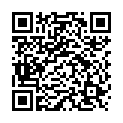|
|
|
| Module code: E2534 |
|
|
- |
|
4 |
| Semester: 4 or 6 |
| Mandatory course: no |
Language of instruction:
German |
Assessment:
Project, written composition with presentation
[updated 25.05.2021]
|
E2534 (P211-0293) Electrical Engineering and Information Technology, Bachelor, ASPO 01.10.2018
, optional course, technical
|
|
The total student study time for this course is 120 hours.
|
Recommended prerequisites (modules):
None.
|
Recommended as prerequisite for:
|
Module coordinator:
Prof. Dr. Albrecht Kunz |
Lecturer: Prof. Dr. Albrecht Kunz
[updated 11.11.2020]
|
Learning outcomes:
After successfully completing this module, students will be able to program single-board computers (preferably Arduino Uno / Raspberry Pi) thanks to a hands-on project in the Telecommunications Electronics Lab. They will be familiar with the basic techniques for program development and the corresponding programming tools.
They will have mastered the programming terms required in order to use the functions of a microcontroller, e.g. to measure analog quantities or control a stepper motor with an H-bridge. They will be able to distinguish different serial communication protocols (I2C, SPI) and implement a serial communication between an Arduino microprocessor and a Raspberry PI single-board computer.
Students will be able to program a graphical user interface for control tasks using event-driven programming (Phyton/TkInter).
The participants will present the knowledge acquired in their project and in doing so, train their presentation skills.
[updated 25.05.2021]
|
Module content:
1. Schematic design and functionality of single-board computers (Arduino Uno/Raspberry Pi).
2. Programming basics, application for controlling a programmable LED chain, controlling stepper motors, setting up an I2C bus connection.
3. Circuitry of components and assemblies and how they are controlled by the single-board computers, controlling an LCD display.
4. Sensors and actuators: Components and functionality for controlling devices for the student project.
5. Introduction to programming using Phython/TkInter to the implementation of a GUI.
6. Designing one or more practical projects (e.g. LCD clock with thermometer, remote-controlled car, control of warning lights via IR route) in a group.
7. Ongoing documentation and presentation of the student project.
[updated 25.05.2021]
|
Teaching methods/Media:
Lecture notes, transparencies (PowerPoint), demonstration per MS Teams, projector
[updated 25.05.2021]
|
Recommended or required reading:
- C: Programmieren von Anfang an, Helmut Erlenkötter; Rowolt
- The C Programming Language (Prentice Hall Software), Kernighan & Ritchie, Markt+Technik Verlag
- Arduino Kompendium, Danny Schreiter, BMU Media GmbH
- Kofler/Künast: Raspberry Pi, das umfassende Handbuch, Rheinwerk Computing
- Python-Online-Kurs https://www.w3schools.com/python/
[updated 25.05.2021]
|


